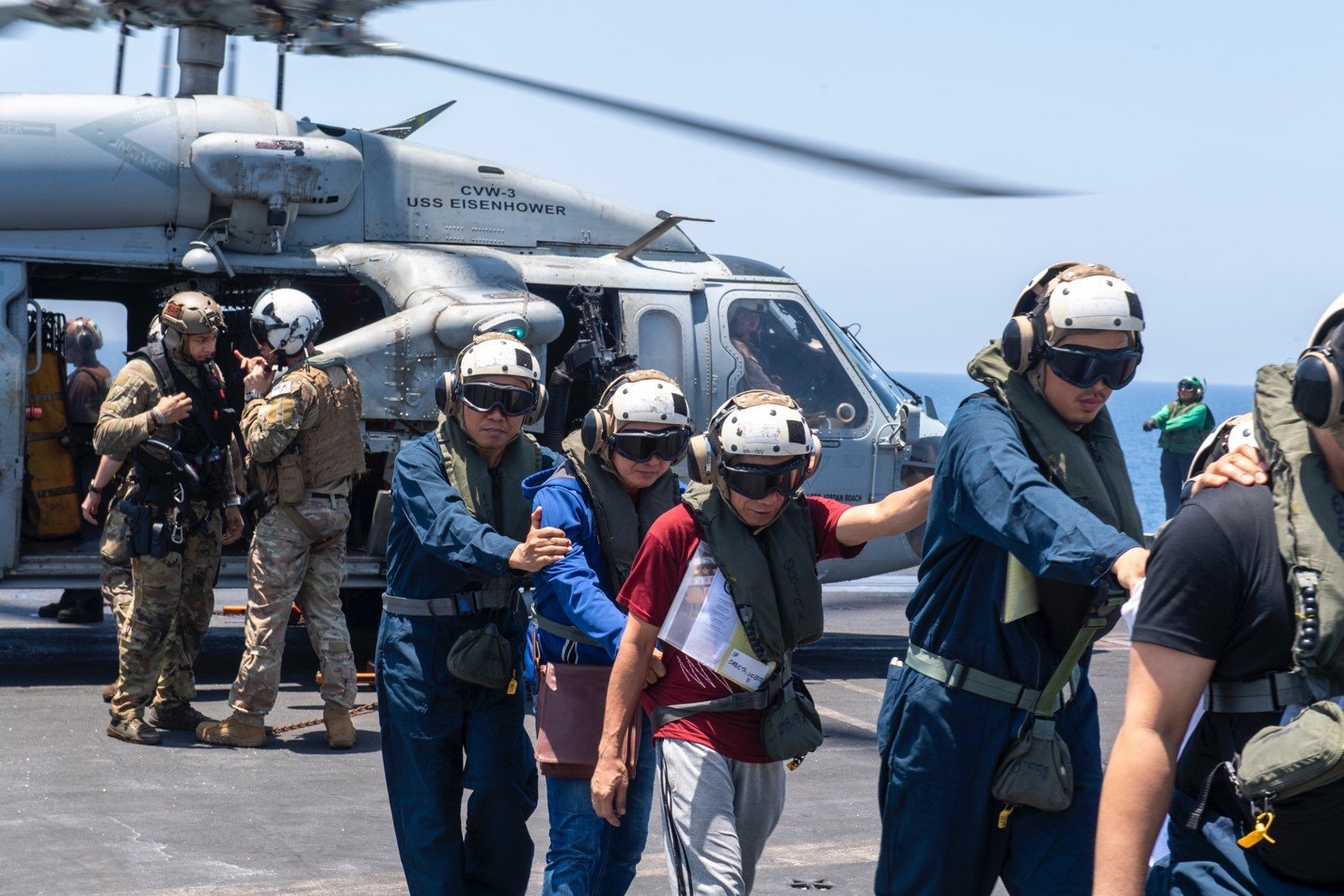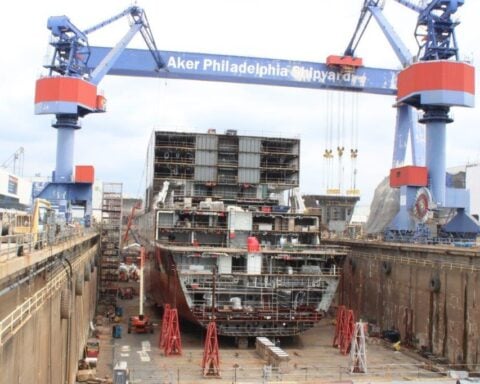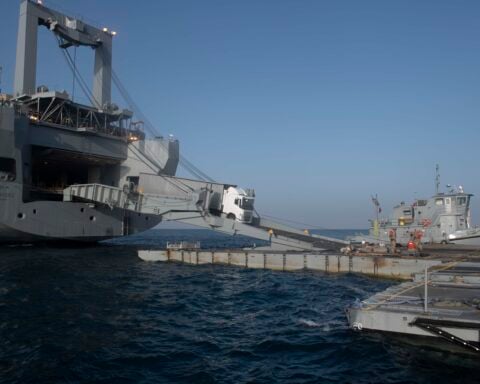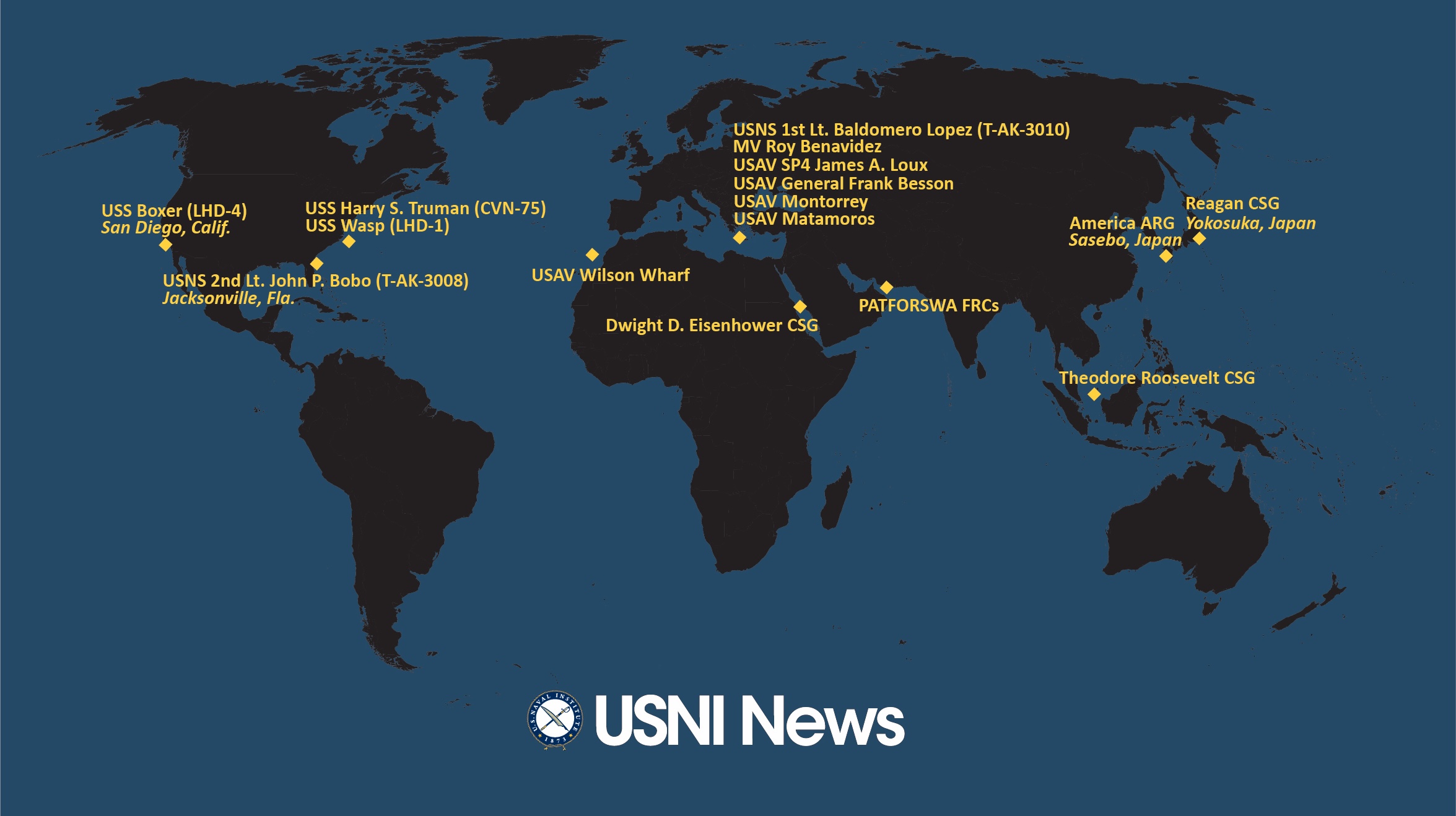
In the last week, Houthi forces killed a merchant mariner, sunk a commercial ship and forced a crew to abandon another in flames. The attacks come as the Houthis continue to escalate its eight-month campaign against commercial traffic in the Red Sea and Gulf of Aden.
The Houthis attacked MV Verbena, a Ukrainian-owned, Polish-operated bulk cargo carrier and Liberian-flagged MV Tutor, leading to both crews abandoning ship after the damage caused fires and flooding. Tutor sank following missile damage led to flooding, while Verbena’s crew abandoned the ship after it could not put out fires caused by the Houthi strike. Aircraft from the Dwight D. Eisenhower Carrier Strike Group, as well as another commercial ship, helped evacuate the crews.
The group says its will not slow its assault on merchant ships unless Israel ends its attacks in Gaza.
Comparative data from Marine Traffic suggests that the Houthi attacks have led to a 79.6 percent drop in drybulk carriers going through the Suez Canal in June 2024 versus June 2023. The recent attacks and sinking of Tutor is expected to lead to an additional rise in insurance costs for companies planning to send ships through the Red Sea.
Central Command continues to work with partners to degrade the Houthi abilities, Pentagon spokesman Maj. Gen. Patrick Ryder told reporters Tuesday.
Sharp Decline in Suez Canal Bulk Carrier Traffic
In June, a 79.6% reduction in #drybulk carriers passing through the Suez Canal was observed, with only 24 ships compared to 118 in the same period last year, according to #MarineTraffic data. This significant drop is primarily due… https://t.co/DJY1LJC2l4 pic.twitter.com/Qvms6Cftxd
— MarineTraffic (@MarineTraffic) June 20, 2024
“We’re very focused on ensuring that these kinds of attacks are degraded, that the Houthis will continue to understand that there’s going to be a price to be paid for essentially preventing freedom of navigation in this vital international waterway, and it’s just completely unacceptable,” Ryder said.
Central Command conducted a number of strikes on Houthi equipment, with near daily attacks on Houthi weaponry.
“And I would say that really, it’s the Houthis that have failed to deter the United States and the international community from continuing to operate in the Red Sea. You know, they’ve conducted over 190 attacks, the vast majority of which have been knocked down, thanks to U. S. and international efforts to help safeguard shipping and the lives of mariners through operations like Operation Prosperity Guardian,” Ryder said.
But while the Pentagon says the U.S. is degrading the Houthi abilities, they continue to be able to attack ships, Bradley Bowman, senior director of the Foundation for Defense of Democracies, told USNI News in a statement this week..
“The United States has continued to destroy Houthi offensive capabilities in Yemen, but the terror group continues to have sufficient means to threaten shipping. This offers insights regarding the size of the terror group’s arsenal and suggests that the Houthis continue to enjoy a supply of arms from its patron in Tehran,” Bowman said in the email. “An effort to destroy capabilities in Yemen that does not devote sufficient attention and resources to interdicting weapons shipments from Iran to Yemen is not unlike the homeowner cleaning up puddles but ignoring the hole in the roof.”
Bowman said that a majority of vessels that continue to travel through the Red Sea are able to do so safely, in part because of the Navy and Operation Prosperity Guardian.
“But the Houthis only need to succeed every now and then to achieve their objectives,” he said.
Based on the Marine Traffic data, the Houthi attacks are having a measurable difference in the Suez Canal traffic. While the Houthi attacks are the main cause to the drop, the reasons could be due to timidness from the companies worried about the Yemeni group as well as rising insurance costs making it cost adverse to go through the Suez.
The DIA report found that 65 countries have been affected by the Houthi strikes with 29 major shipping companies also hampered by the attacks. Companies, such as Maersk, chose to go around the Cape of Good Hope, at the tip of South Africa, instead of going through the Red Sea in order to avoid strikes, causing up to $1 million in fuel costs and additional transit times of one to two weeks. This also led to a delay in humanitarian aid to countries like Yemen, according to the report.
The Houthi attacks are not helping Palestinians but instead hurting the Yemeni people, Ryder said Tuesday.
The report listed these effects as of February, making it unclear how many companies are still transiting around Africa.

Maersk, which had sent ships around Africa, has resumed sending ships through the Red Sea, as recently as this month, as the Houthis claimed to have targeted a Maersk ship on June 5, according to USNI News’ timeline.
Swiss company MSC has also continued to send ships through the Red Sea, with the Houthis targeting a number of MSC ships, according to USNI News’ timeline.
The Houthis began attacking ships in the Red Sea and Gulf of Aden in November 2023, following Israel’s bombardment of Gaza in response to the Hamas attacks on Oct. 7. Between December 2023 and February 2024, the number of container ships transiting through the Red Sea dropped by 90 percent, according to a report by the Defense Intelligence Agency released last week.
The Houthis first attacked commercial ships connected to Israel, expanding to those with ties to the U.S. and United Kingdom following coordinated strikes by the two countries, in partnership with other nations. The Yemen-based group then began to attack any ship going to or from Israel, as well, before declaring they would attack nearly any commercial ship transiting through the Red Sea, as well the Indian Ocean and Arabian Sea, USNI News previously reported. The Houthis have also claimed they would target some ships in the Mediteranean Sea.
Houthi spokesperson Brig. Gen. Yahya Sare’e posts every couple of days on the site with an update, usually including operations that target a number of ships. Sometimes Central Command releases match up with the Houthi claims. Other days, the Houthis list ships that go unmentioned by Central Command.





